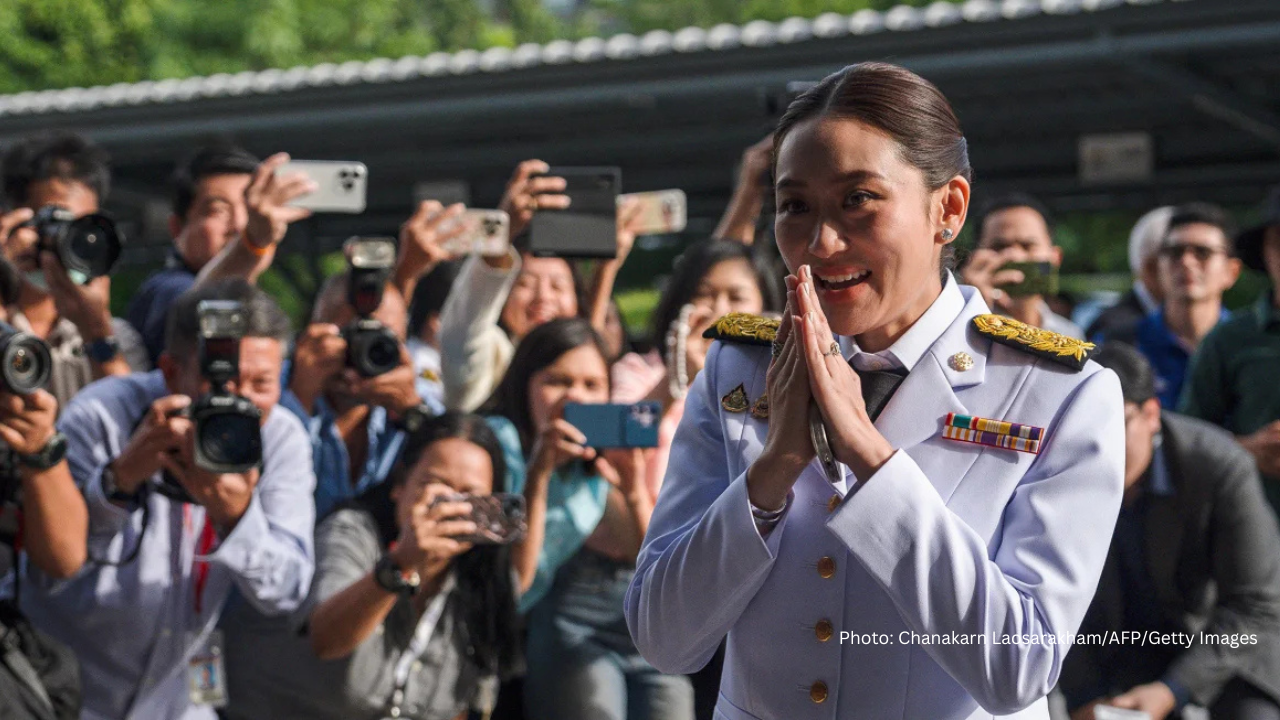Thailand's Youngest Prime Minister: A Fresh Facade for Existing Power Structures
Sadia Tabassum | 29 August 2024
Paetongtarn “Ing” Shinawatra, 38, was elected Thailand's youngest prime minister on August 16. She is the daughter of former Prime Minister Thaksin Shinawatra, a significant and controversial figure in Thai politics. Since 2023, Paetongtarn has led Pheu Thai (For Thais), the country’s second-largest political party. She is also the third member of her family to hold the highest office in the nation, following her father, Thaksin, and aunt, Yingluck.
The ruling Pheu Thai Party selected Paetongtarn to succeed Prime Minister SretthaThavisin after the Constitutional Court compelled Thavisin to resign due to his appointment of an illegitimate politician to his cabinet. This change is part of a long-standing conflict involving the military, the pro-royalist establishment, and populist parties linked to Thaksin. Thaksin initially transformed Thailand's political landscape when he was elected prime minister in 2001. Despite his popularity, and winning three elections, the royalist elite were alarmed by his populist policies, which threatened the monarchy—a crucial element of Thai identity. This opposition contributed to Thaksin and his sister Yingluck being forced from office and into exile.
Last year, upon Pheu Thai joining the government, Thaksin returned to Thailand after years in exile, following his ousting in a military coup in 2006. However, his return was controversial, as many former supporters felt alienated by what appeared to be a self-serving agreement with his old conservative rivals. This deal enabled his return and facilitated his party's formation of a new government, but it sidelined the progressive Move Forward Party, which had won the most votes in the election but was perceived by the establishment as a greater threat.
Paetongtarn needs the support of more than half of the 493 legislators in parliament to become prime minister, and Pheu Thai, along with its allies, controls 314 seats. Although Paetongtarn lacks political experience, there are concerns that she may become a puppet for her father, Thaksin, or the conservative elites. Trust has been a significant issue between these factions.
Thaksin's complicated relationship with King Vajiralongkorn is highlighted by the ongoing lèse-majesté case. Despite many younger Thais advocating for a monarchy that is less powerful and more aligned with constitutional models like those in Japan and the United Kingdom, the king remains the ultimate power broker in Thai politics. It is widely believed that the king approved Thaksin's return to Thailand.
The monarch, who is more politically active than his father was, continues to be revered by Thailand's traditional elites. However, he lacks the charisma and popular support that his father had during his six-decade reign. Thaksin, Thailand's former prime minister,has re-entered politics despite his previous statements about retiring to take care of his grandchildren. He has shared his vision for Thailand, particularly focusing on economic issues, at various constituencies and high-profile events.
Paetongtarn’s political survival depends on whether she follows her father’s guidance or the demands of the conservative elites, which may cause tension between the two. This situation suggests that her role as prime minister will be less autonomous than that of Yingluck, who made significant decisions despite her ties to Thaksin. Given the mistrust between these parties, Paetongtarn's leadership is likely to contribute to ongoing political instability in Thailand.
In terms of politics, the new administration needs to balance the interests of the various groups within its ruling coalition. The Pheu Thai party’s unusual partnership with its former conservative and pro-military rivals raises questions about the government’s ability to implement significant changes. Full support from conservative voters and these parties is not guaranteed, leaving Paetongtarn in a precarious position. She risks facing criticism from multiple sides, which could hinder her effectiveness as a leader. Although there is some generational renewal, Paetongtarn's election still represents the continuation of a political system dominated by powerful families and the military-royalist elite.
There are serious questions regarding the independence of these institutions and the stability of the rule of law in Thailand when reformist voices are silenced by judicial institutions and monitoring bodies such as the Constitutional Court and the National Anti-Corruption Commission. It will be important to observe whether Paetongtarn follows in her father's footsteps or carves out her path when she begins her term by forming her cabinet. Her term will be closely scrutinized—not only for the policies she implements but also for the impact her leadership will have on the nation's democracy moving forward. The crucial question is whether she can break the cycle of political unrest or if she will become fascinated by the same factors that have shaped Thailand's history and her family's legacy.
Sadia Tabassum is a Research Associate at CGS
Note: Views in this article are author’s own and do not necessarily reflect CGS policy.
